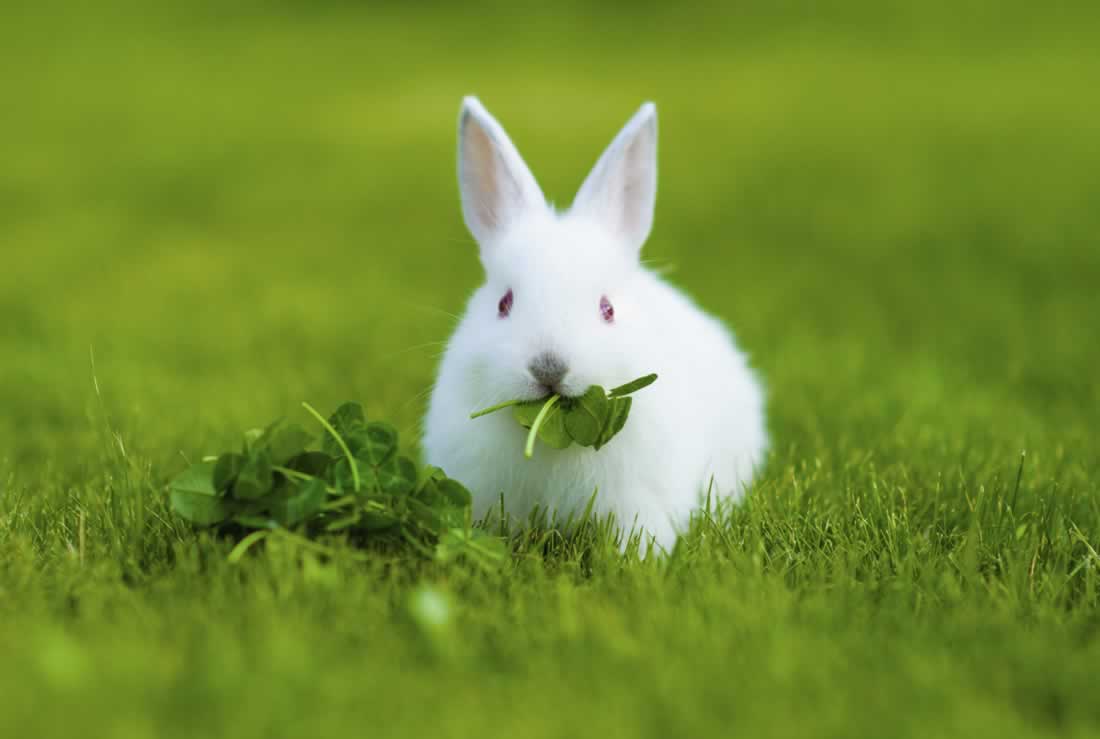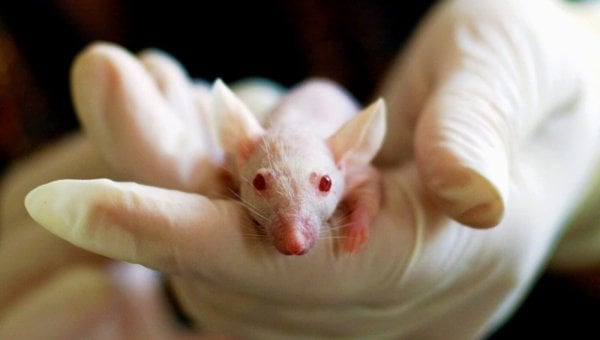HUGE News! Cosmetics Regulations in China Just Got More Animal-Friendly
Good news for animals! Following years of work by PETA, China will soon allow many imported cosmetics and personal-care products—such as shampoo, body wash, lotion, and makeup—to be sold in the country without being tested on animals, as was previously required. This means that companies can soon take certain steps to market most of these products in China without being required to pay to have them force-fed to animals or applied to their eyes.
“General cosmetics” (formerly classified as “non–special use cosmetics”) include most makeup, fragrances, and skin-, hair-, and nail-care products.
“Special cosmetics” (formerly called “special use cosmetics”) are those that make functional claims, such as “hair dyes, hair perming products, freckle-removing and whitening products, sunscreens, anti-hair loss products and cosmetics claiming new efficacy.”
How PETA Paved the Way for Progress
Nine years ago, PETA made a bombshell discovery that rocked the beauty world: Many formerly cruelty-free companies were quietly paying for deadly tests on animals in order to market their products in China. These tests involve force-feeding products to animals, smearing chemicals on their skin, or applying substances to their sensitive eyes. After exposing the companies’ secret support for testing, PETA launched an intensive effort to change China’s testing requirements. Wanting to enhance familiarity with and support for non-animal testing methods and laboratories in China’s scientific community, we awarded two grants to the Institute for In Vitro Sciences (IIVS) so that its scientists could travel to China to provide their expertise and guidance on replacing cruel, unreliable animal tests with superior, non-animal methods.
PETA’s grants also allowed the IIVS to set up animal-free testing laboratories in China and create a coalition of cosmetics companies to support its efforts. Since then, the Chinese government has accepted a number of non-animal testing methods for cosmetics and has made critical changes to its animal testing requirements—the latest of which we hope will spare many animals’ lives.
These new regulations are a huge step in the right direction, but they don’t mean an end to all tests on animals yet. Here’s what you need to know about cosmetics testing requirements in China, what the current law actually means for companies that sell products there, and how you can help prevent animals from suffering in cruel experiments.
A History of China’s Animal Testing Regulations for Cosmetics
- In 2012, PETA gave Avon, Estée Lauder, and Mary Kay the boot from our cruelty-free cosmetics list after outing them for covertly paying the Chinese government to test their products on animals. PETA also persuaded major companies like Dermalogica and Juice Beauty to withdraw from the Chinese market until tests on animals were no longer required for their products there.
- In 2014, following PETA’s collaboration with the IIVS, China began allowing companies that manufacture non–special use cosmetics (now called “general cosmetics) within the country’s borders, to submit non-animal test data to meet its registration requirements. This move enabled iconic brands like Dove and Herbal Essences (which have manufacturing facilities in China) to be listed with PETA as animal test–free.
- On June 29, 2020, after delays because of the COVID-19 pandemic, China’s State Council released the eagerly awaited final version of the Cosmetics Supervision and Administration Regulation (CSAR). This law appointed another government agency—China’s National Medical Products Administration (NMPA)—to formulate specific details for animal testing requirements under the law.
- On July 28, 2020, the NMPA released a draft of the sub-regulations for testing on animals, which would undergo a series of revisions and public comments.
- On January 1, 2021, the CSAR went into effect without the final testing sub-regulations in place yet.
- On March 4, 2021, the NMPA finalized and passed the cosmetics testing sub-regulations under the CSAR to go into effect on May 1, 2021. The new regulations will allow companies to market most imported general cosmetics and personal-care products without animal testing, if they take certain steps and qualify for an exemption.
So, does this mean that all cosmetics sold in China will be cruelty-free?
Not exactly. Companies must take a number of steps and apply for the exemption to the animal testing requirements for imported general cosmetics. Companies that don’t take these steps or don’t qualify for the exemption will still be required to pay for tests on animals for their products.
Additionally, companies manufacturing special cosmetics are still required to pay for tests on animals. So, while the finalization of the animal testing regulations under the CSAR is an exciting milestone, animals used in experiments still need our help.
What does China’s new testing regulation mean for you as a consumer?
We know it can be tricky to figure out which products are manufactured by companies that don’t test on animals, but you can rely on PETA’s Global Beauty Without Bunnies list. Our online searchable database includes more than 5,200 compassionate companies and brands that don’t test on animals anywhere in the world.
You can download the Bunny Free app here:
Do More to Help Animals Used in Experiments
The best way to persuade companies to stop using animals is to refuse to purchase their products and to write and tell them why you won’t be using their eye shadow, detergent, shampoo, etc. Click on the link below to do even more.



